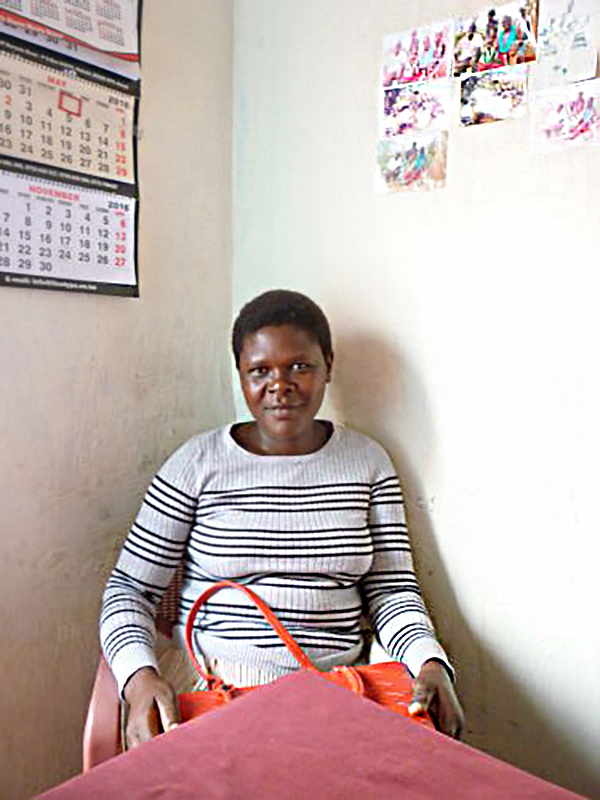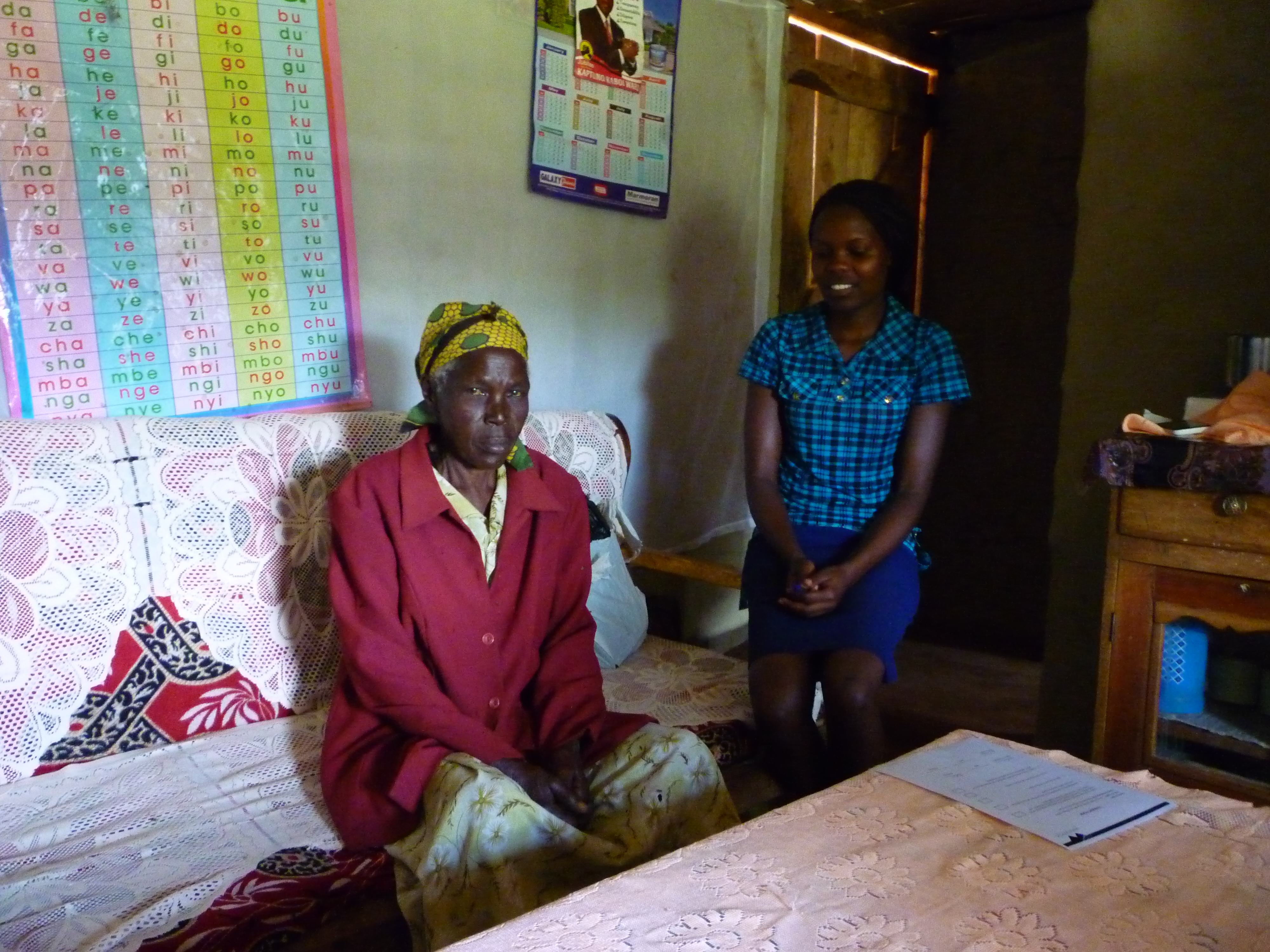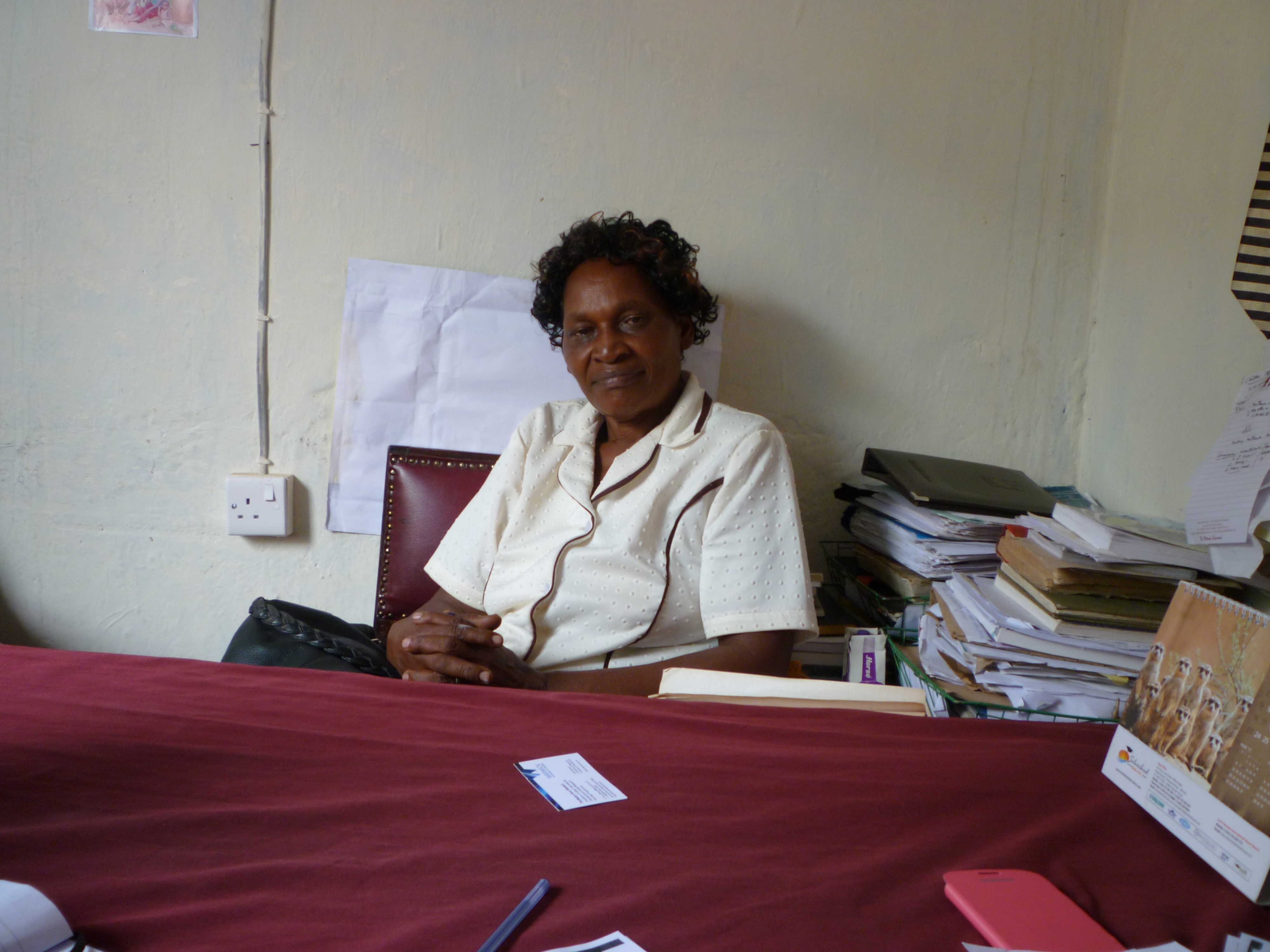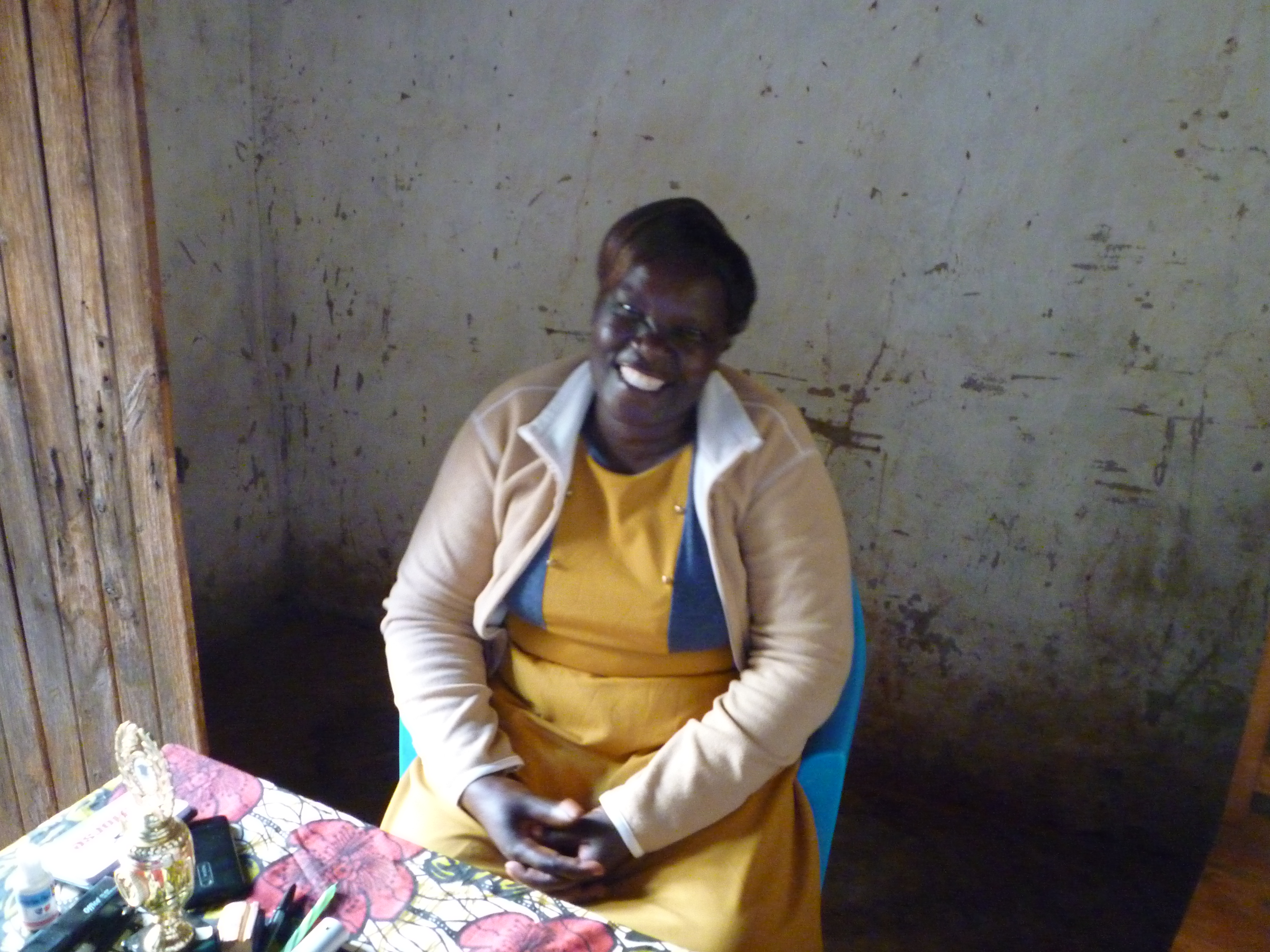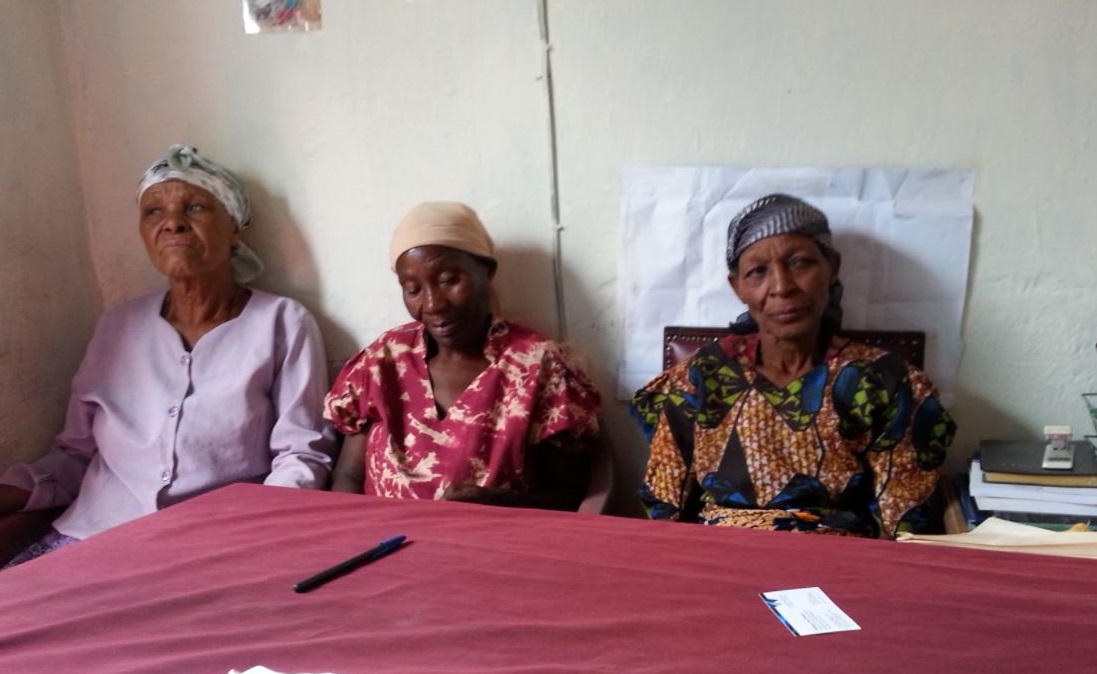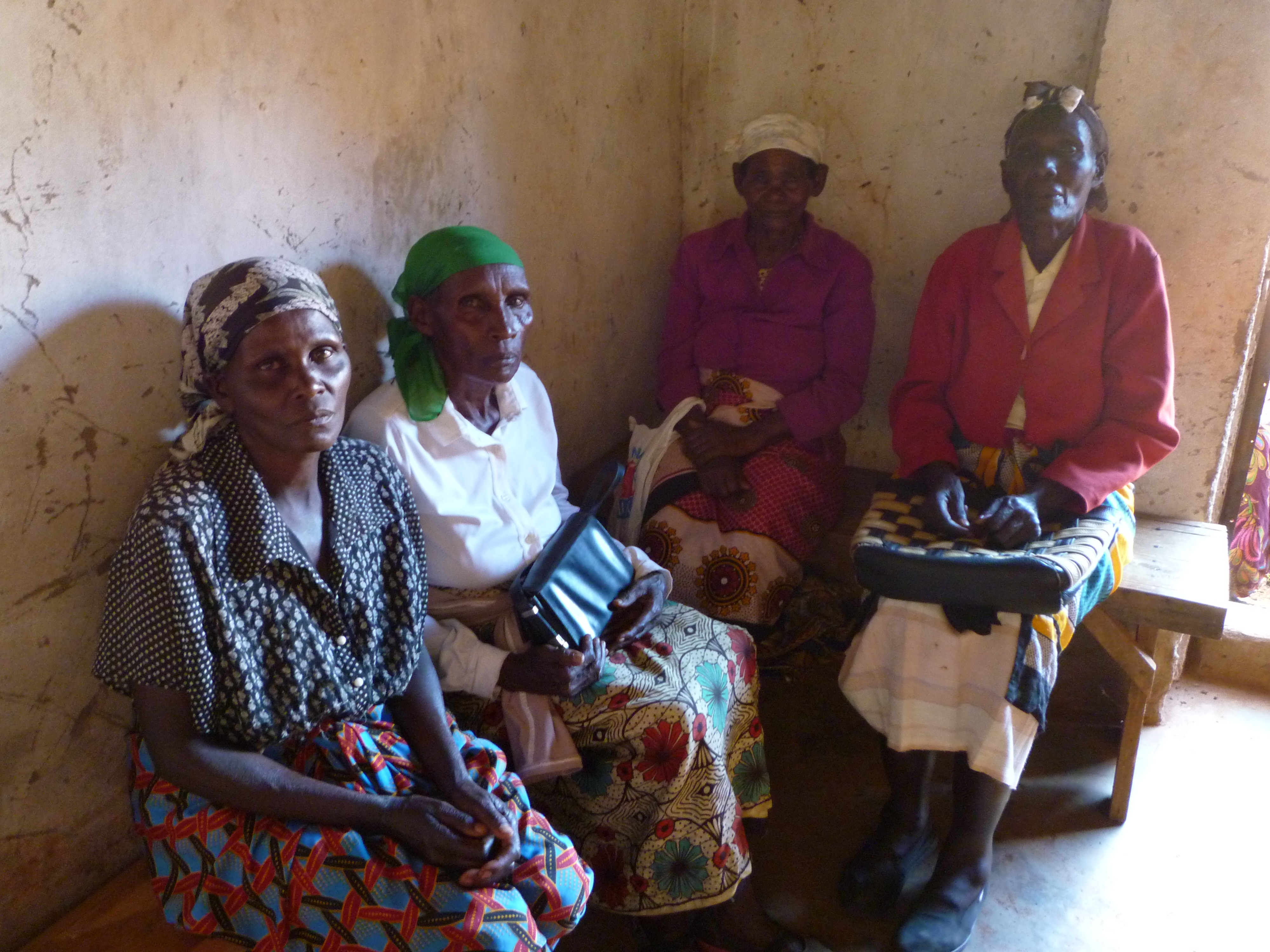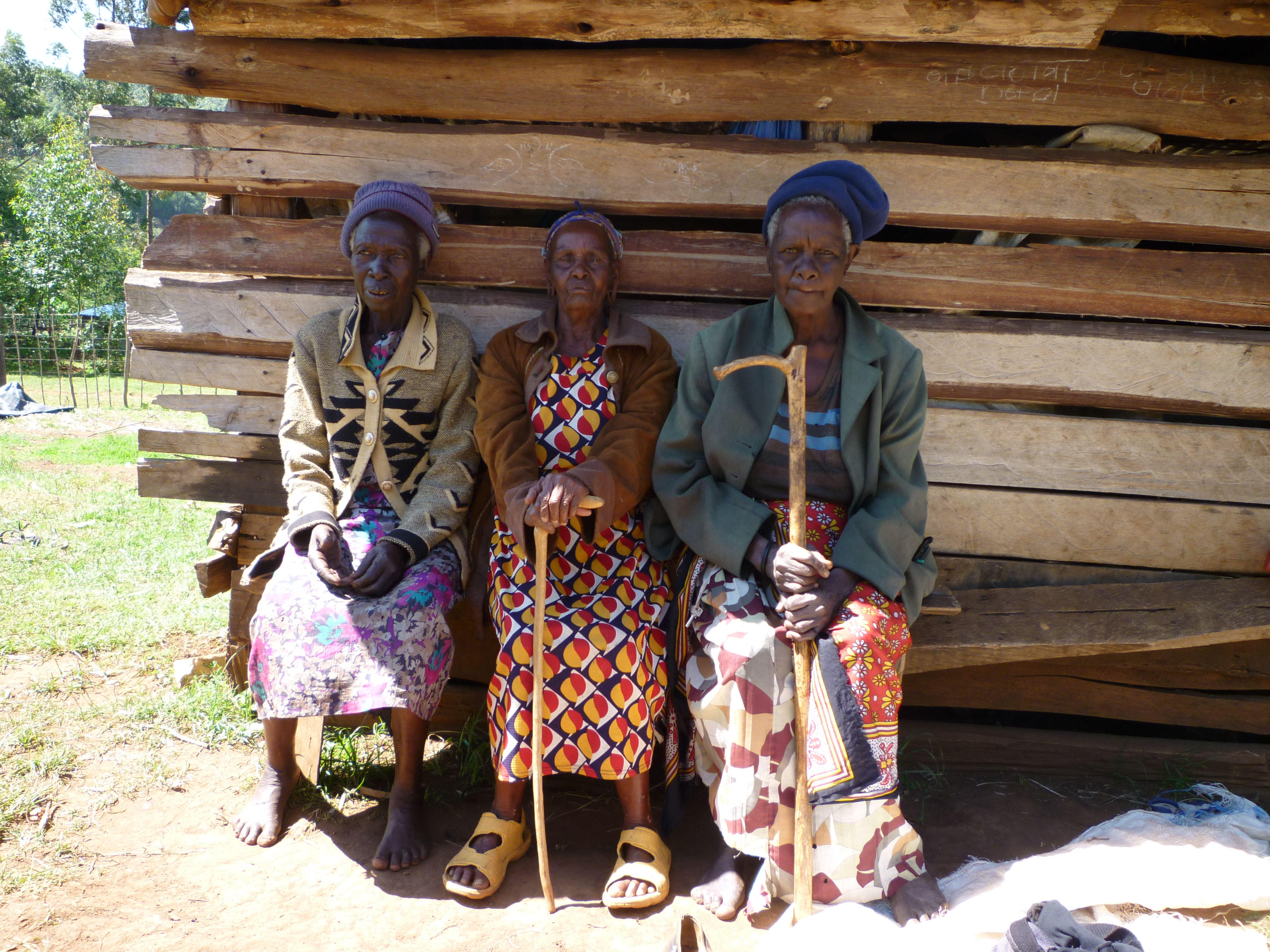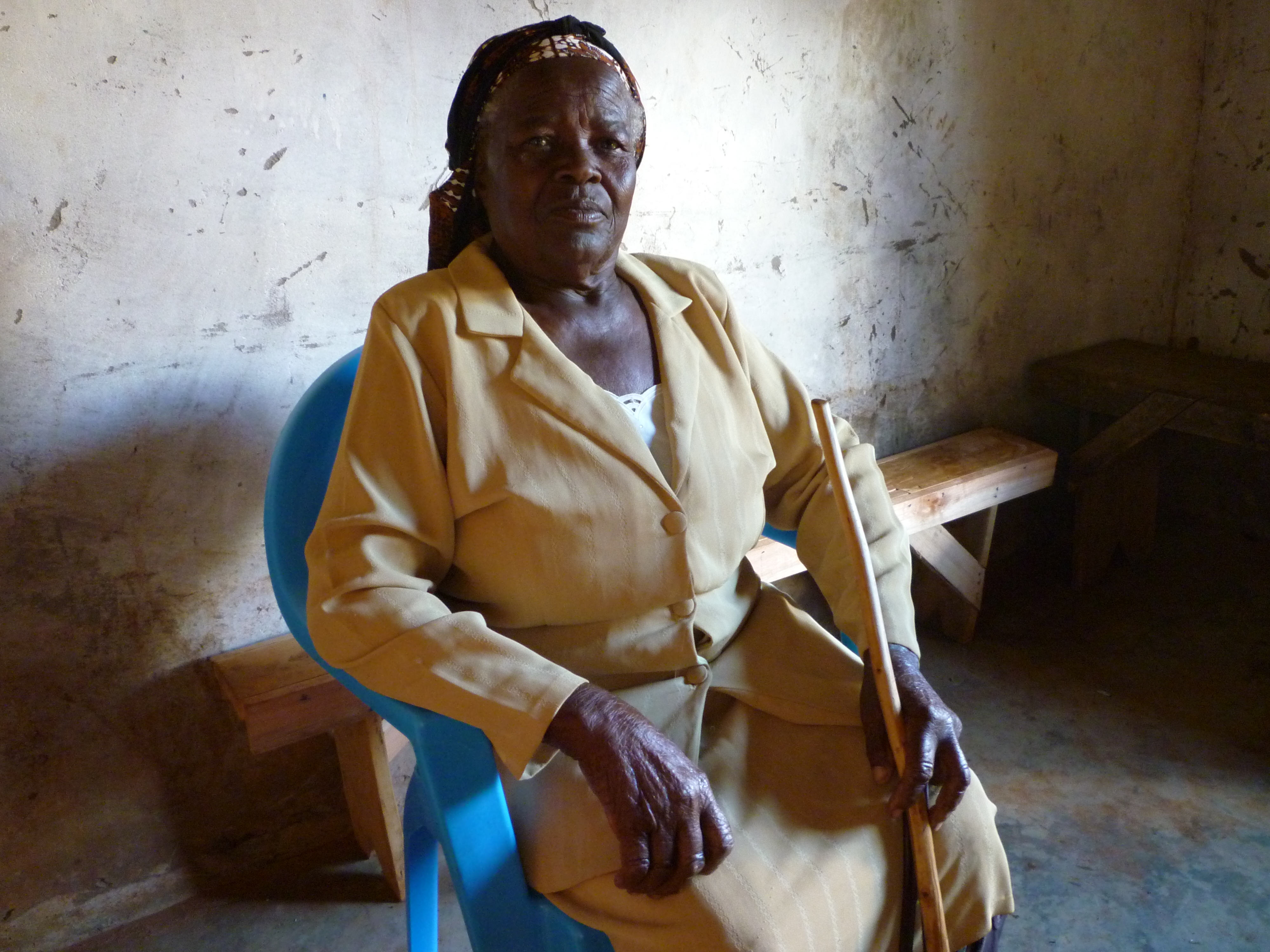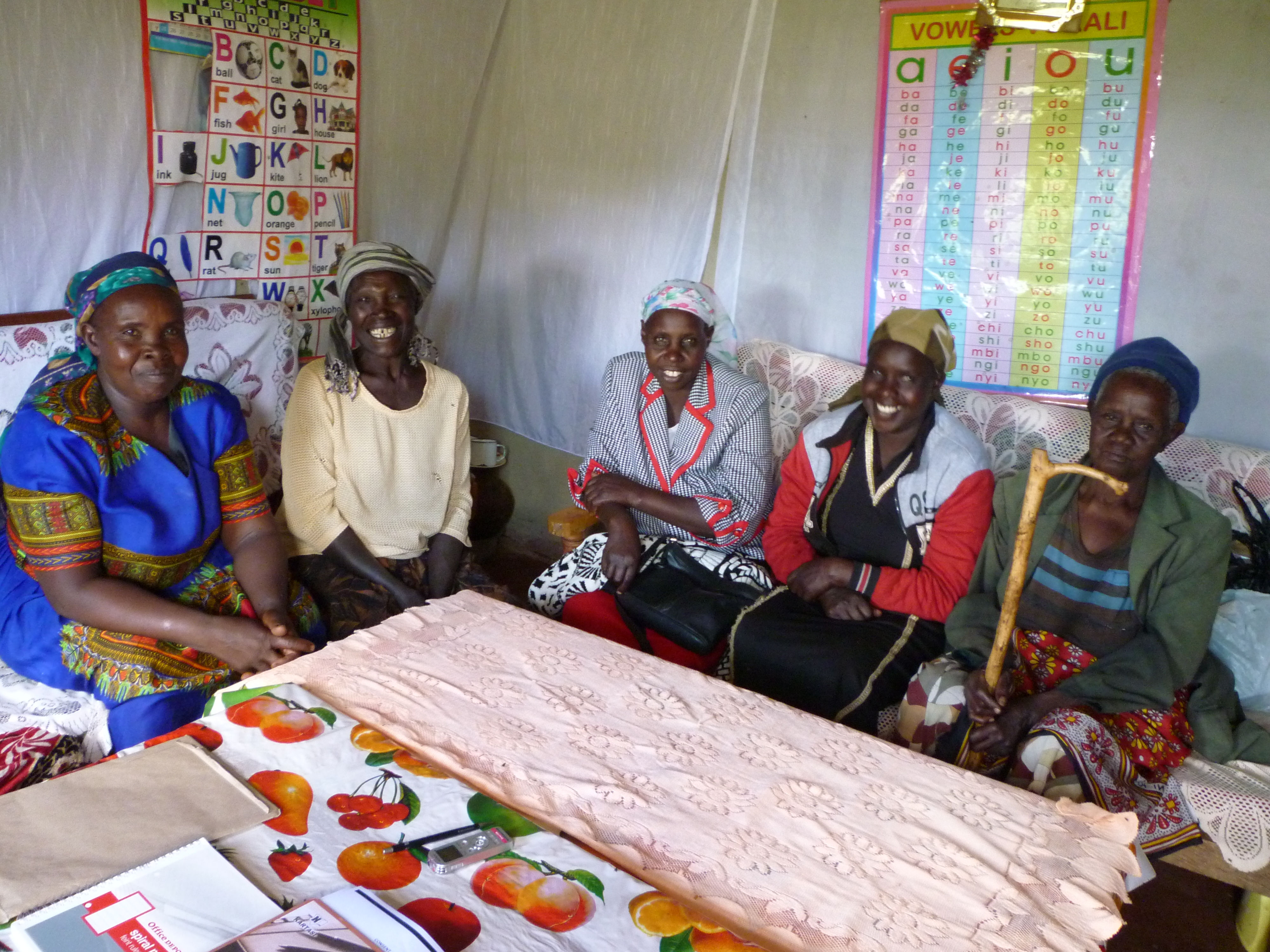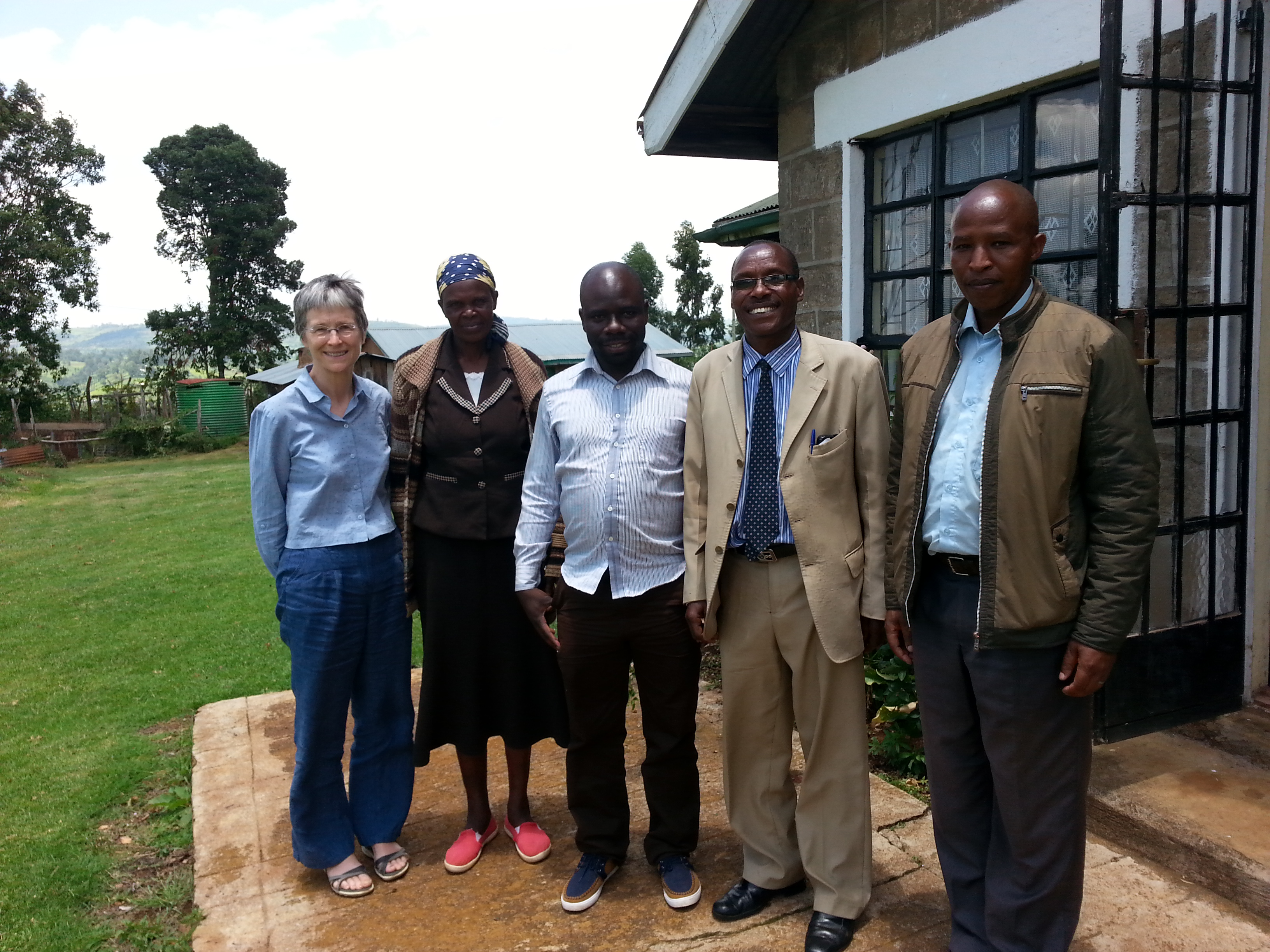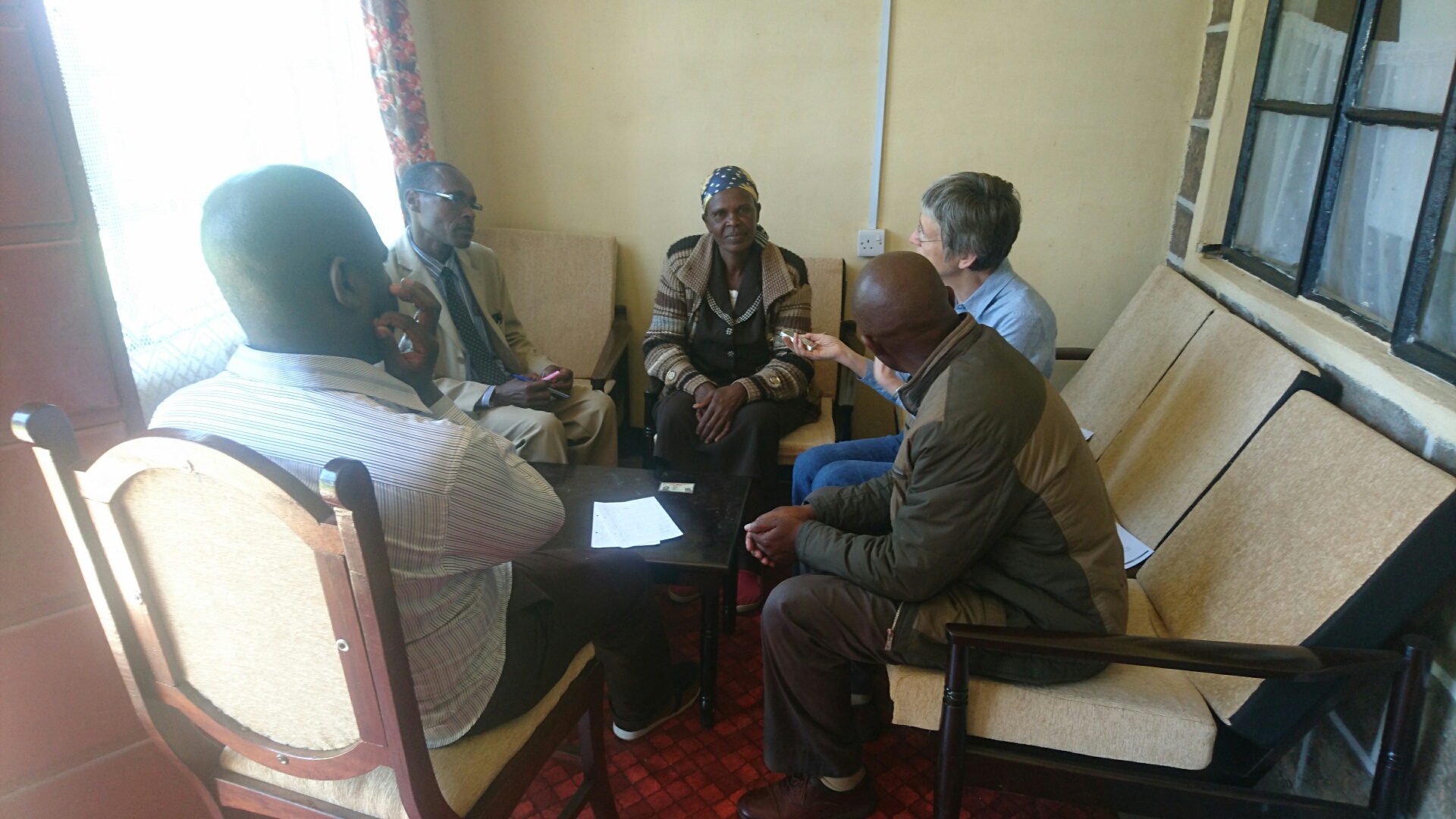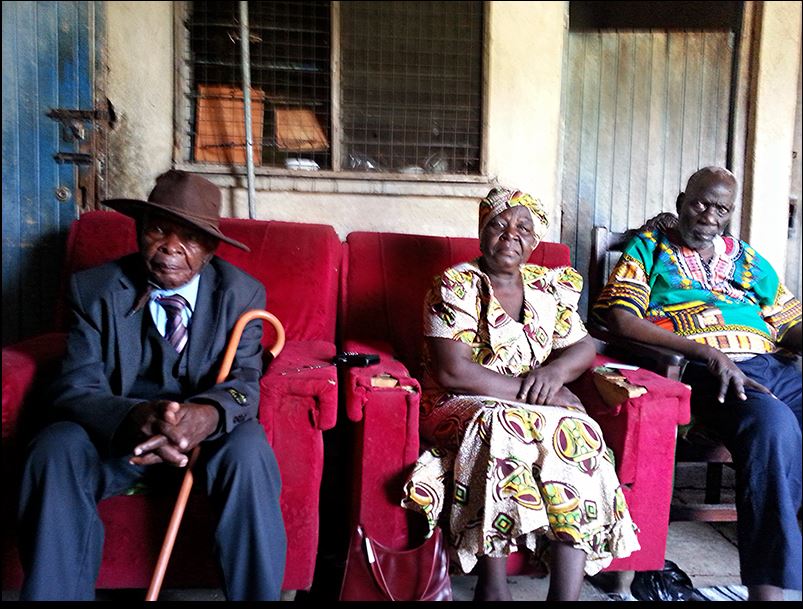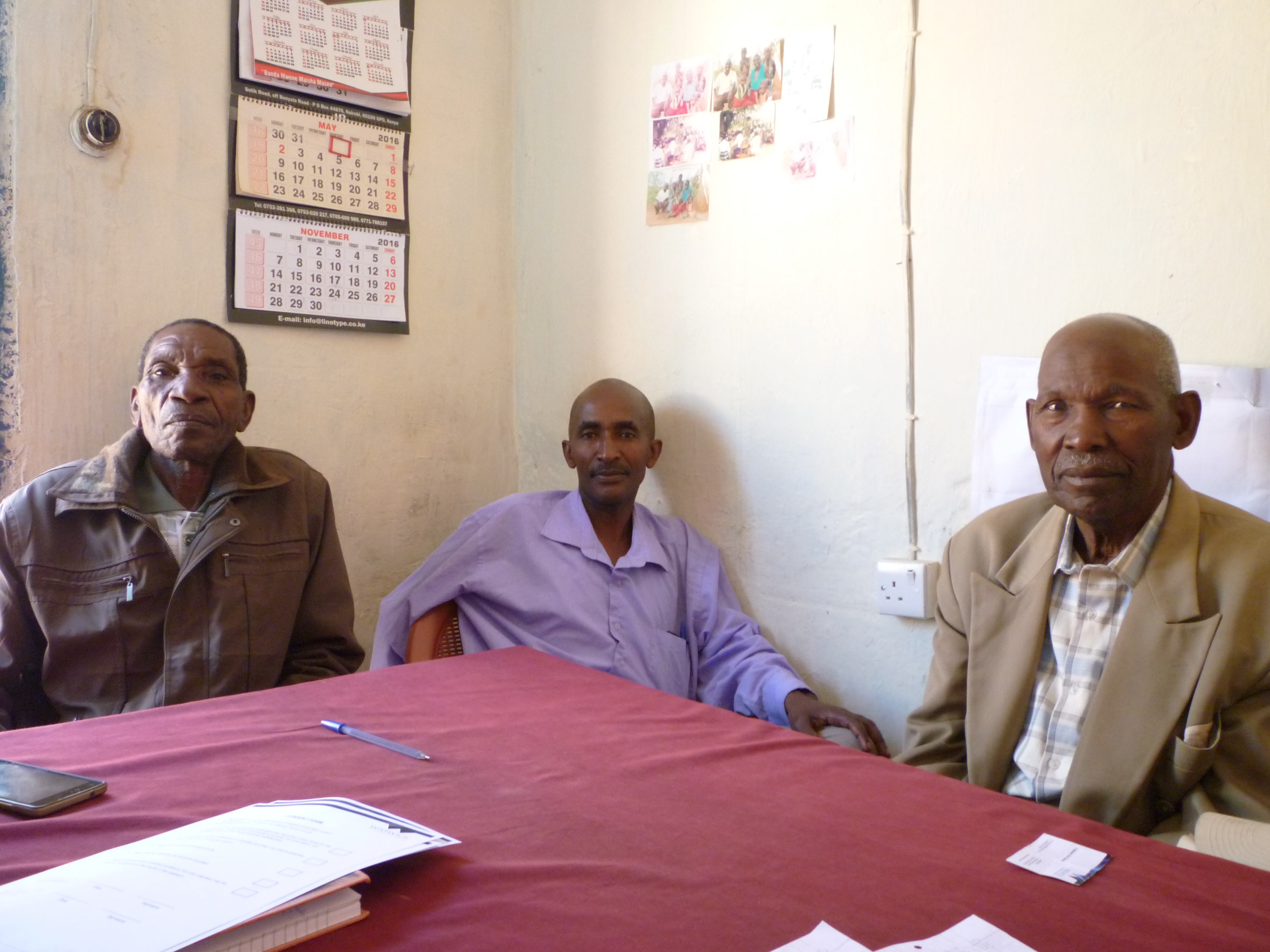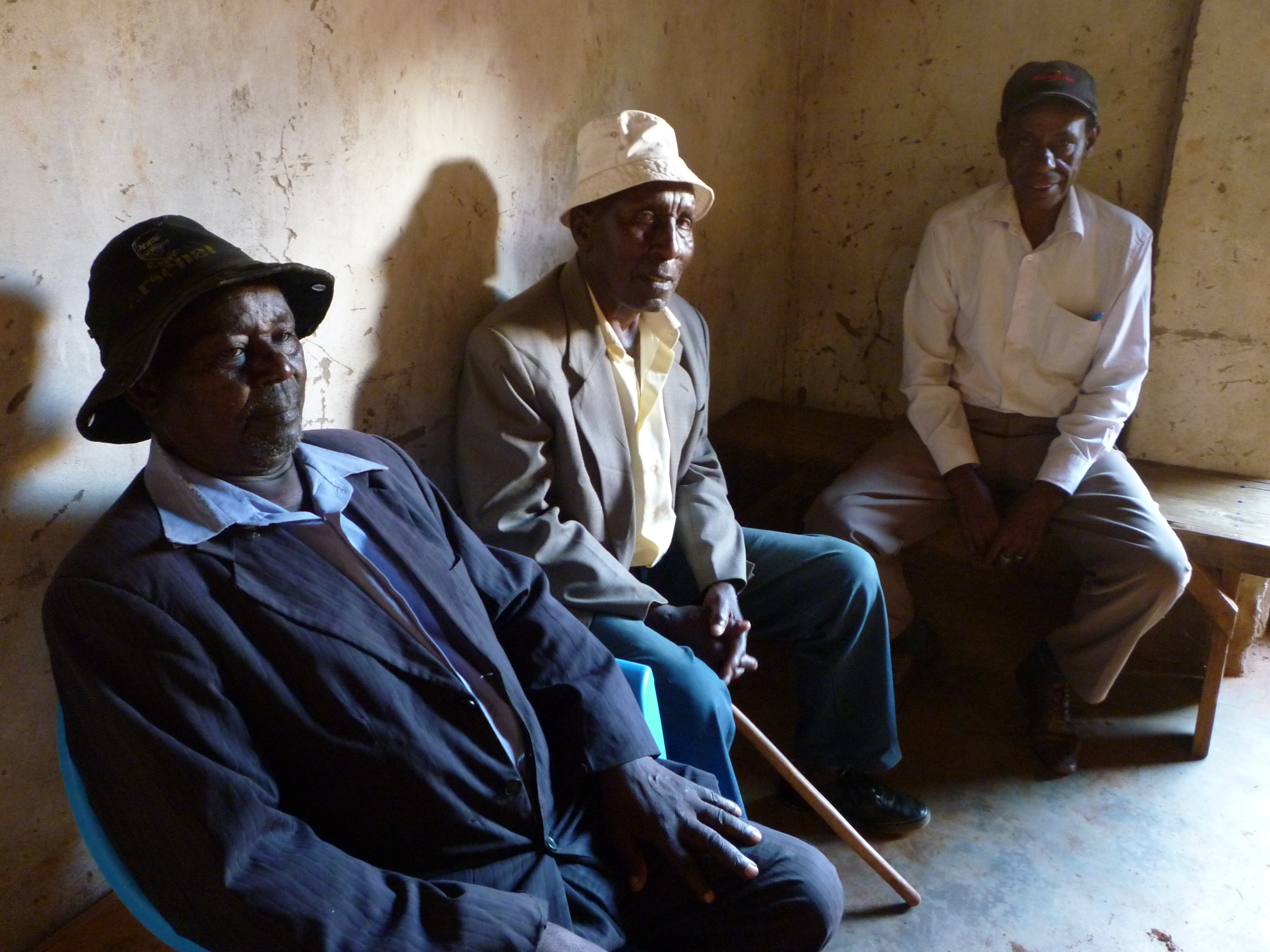Caring for older women in Kenya
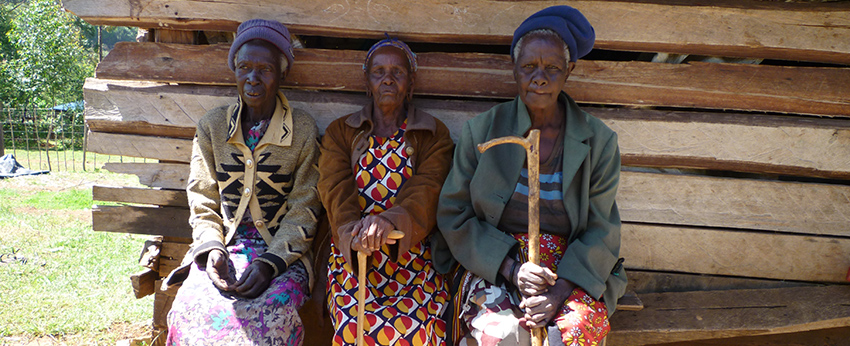
Socio-economic and political circumstances are changing in contemporary Kenya, with an effect on the traditional, community and family customs of caring for older people, particularly women.
This project seeks to assess the contribution of ‘woman to woman’ marriage to the provision of care for the elderly in light of a lack of sufficient social securities provided by the State.
What is ‘Woman to Woman’ Marriage?
The customary institution by which it is possible for a woman to marry another woman, delegating the duties of procreation to a male, the offspring of which she has full control. (Krige, 1974)
Are such marriages evolving into a way of recognising and rewarding caring activities in particular the care provided by the younger woman to the older woman in the arrangement?
Does the arrangement ensure that the older woman in cared for in her community?
How is such care recognised? Through the status of marriage and through inheritance rights for the younger woman and the children of the marriage?
How are claims for recognition currently understood in formal courts and community dispute resolution practices?
This study will lay the basis for a broader research agenda to investigate the way that claims for the recognition of caring labour are framed and mediated in postcolonial legal settings.
The elderly population throughout the world is growing at a rapid rate, with an increasingly acute effect seen in the Global South.
Projections suggest Sub-Saharan Africa will see a rise from 32 million older people (60+) in 2008 to 212 million in 2050.
This shifting population dynamic is one that requires a response from both society and state to sufficiently support new care needs.
In Kenya, there are a number of factors impacting the experience of old age: a shortage of land and labour to provide subsistence, a lack of state welfare provision, and distribution of family property through kinship systems and customary institutions.
Furthermore, despite the growing urbanisation of young people, family-based care remains central to rural communities.
Older women are particularly reliant on children for support in old age, whilst at the same time there exists a growing practice of older people providing primary care for HIV/AIDS orphans.
To date work on social protection for the elderly in East African states has been limited with focus more traditionally on youth and orphans, making this an emerging policy area for low-welfare states on which there is growing pressure to address social security.
There is a need to assess the processes surrounding provision of care for the elderly within complex legal contexts in Kenya and to consider the way in which understandings of legal entitlements impact on the development of social protection policies for the elderly.
The study will also contribute to the growing regional and global research focus on this topic.
It fits directly within the remit of Sustainable Development Goals on gender equality and care (specifically SDG 5, Target 4).
- Contribute to academic discourse and policy discussion on the provision and availability of care in East Africa.
- Reveal research findings that can support and enhance gender-sensitive policy-making and judicial decision-making on issues relating to care.
- Re-evaluate historical accounts of woman to woman marriages from the perspective of care giving and claiming in Kenya and Anglophone East Africa.
- Assess woman to woman marriage practices as a means by which women with assets are able to secure care in older age within plural legal settings.
- Refine Stewart’s conceptual framework relating to how informal, caring labour is valued and claimed in various legal contexts and states lacking well developed welfare systems, using Kenya as a case study.
Using an empirical approach and socio-legal and gender perspectives:
- Identify, through primary research of court records, cases relating to woman to woman marriage over the last 10 years within the Kenyan High Court.
- Undertake a number of semi-structured interviews with key stakeholders (including judges, magistrates, women’s rights and advocacy groups),and also, using experienced local research assistance, with those involved in dispute resolution within communities that recognise woman to woman marriages (such as the Kisii, Luo, Kamba, and Kikuyu people among others).
- Review and re-evaluate existing literature on customary practices from a care perspective.
- Seek out additional sources of information on historical and contemporary practices relating to woman to woman marriages, including grey literature and more informal sources (such as knowledge within women’s advocacy groups).
This project aims to impact Kenyan legal and social policy development and societal engagement on issues related to care of the elderly from a gender perspective.
The work will contribute to the development of Sustainable Development Goal 5, Target 4, which seeks to 'recognize and value unpaid care and domestic work through the provision of public services, infrastructure and social protection policies, and the promotion of shared responsibility within the household and the family as nationally appropriate.’
Outputs:
- Academic publications based on the research findings
- A report to provide the basis for a regional two-day workshop
- Workshop: Care, Work and Property: How is Care Labour Valued? Addressing SDG 5: Target 4 in Plural Legal Systems - bringing together academics, civil society organisations and policy-makers to shape the ways in which caring is being addressed within communities, the market and the state in East Africa.
- Workshop outputs:
- Published papers in an edited collection or special issue of an appropriate journal
- Focused briefing materials as appropriate for particular interest groups
- A potential bid for further research in issues evolving from the research in collaboration with a network of interested parties
- Contribution to social protection policy-making and substantiating a human right to care
Interested parties will be invited to participate in the project workshop: Care, Work and Property: How is Care Labour Valued? Addressing SDG 5: Target 4 in Plural Legal Systems.
Collaboration and discourse with regional and key international academics working on care issues and social protection is welcomed.
Ideas for further research, appropriate or useful for policy-making, will be sought with the help contacts made as a result of the fellowship.
The research will be used to provide project participants (social and legal policy makers, legal practitioners and judicial officers) with draft policy briefs.
There will be continued promotion of new research findings to mixed audiences of policy-makers, regional and international organisations, civil society organisations, legal practitioners and judges, and academics.
Collaborators:
David Ngira Otieno (Kenya based research assistant) is about to start his PhD at the University of Utrecht supervised by Professor Barbara Oomen (and Ann Stewart at Warwick) on the role of alternative dispute resolution in family relations and protection.
News
Professor Ann Stewart visits Kenya in preparation for research
Research collaboration in Kenya with Warwick Alumni
Professor Ann Stewart awarded £50,000 Leverhulme Research Fellowship
University of Warwick in drive to improve care among older people in Kenya
Events (Past and Present)
Tue 12 Sep '17: Workshop: Care, Work and Property: How is Care Labour Valued?
Wed 15 Nov '17
KLS Staff Seminar Series- Who Cares for Elderly women in Africa? Dr Ann Stewart
Media Gallery
Caring for Older Women in Kenya’s Plural Legal System
Oct 2016 - Sept 2017 (1 year)
Location(s): Kenya and UK
Lead:Research Team
David Ngira Otieno (University of Utrecht)
Jennifer Lander (University of Warwick)
Documents
![]() Stewart - Care or Work - The Tyranny of Categories
Stewart - Care or Work - The Tyranny of Categories
Related Reading
HelpAge International: 'Older Women are the Invisible Linchpins of the Household Economy'
HelpAge International: 'Consider inequalities across the life course to improve older women's lives'
Project code: RLAAA3069




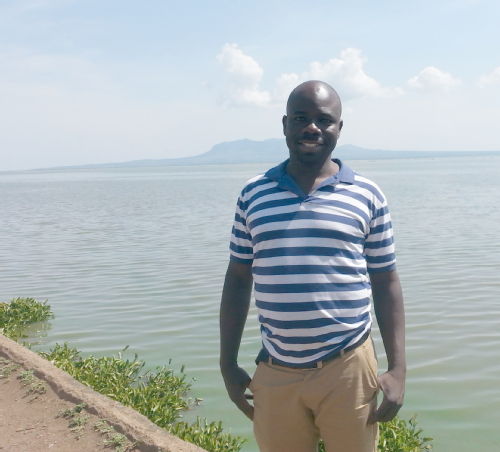
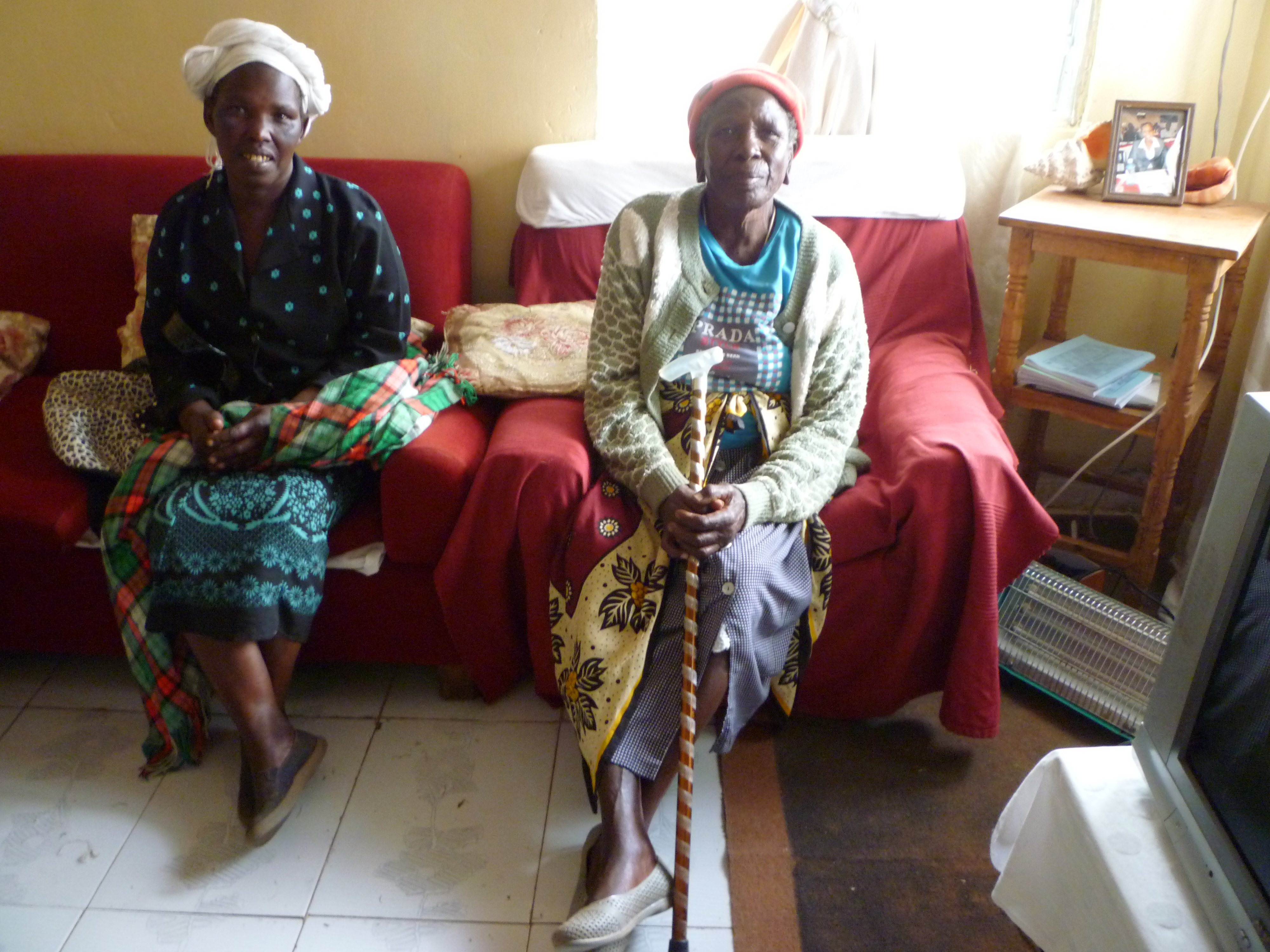
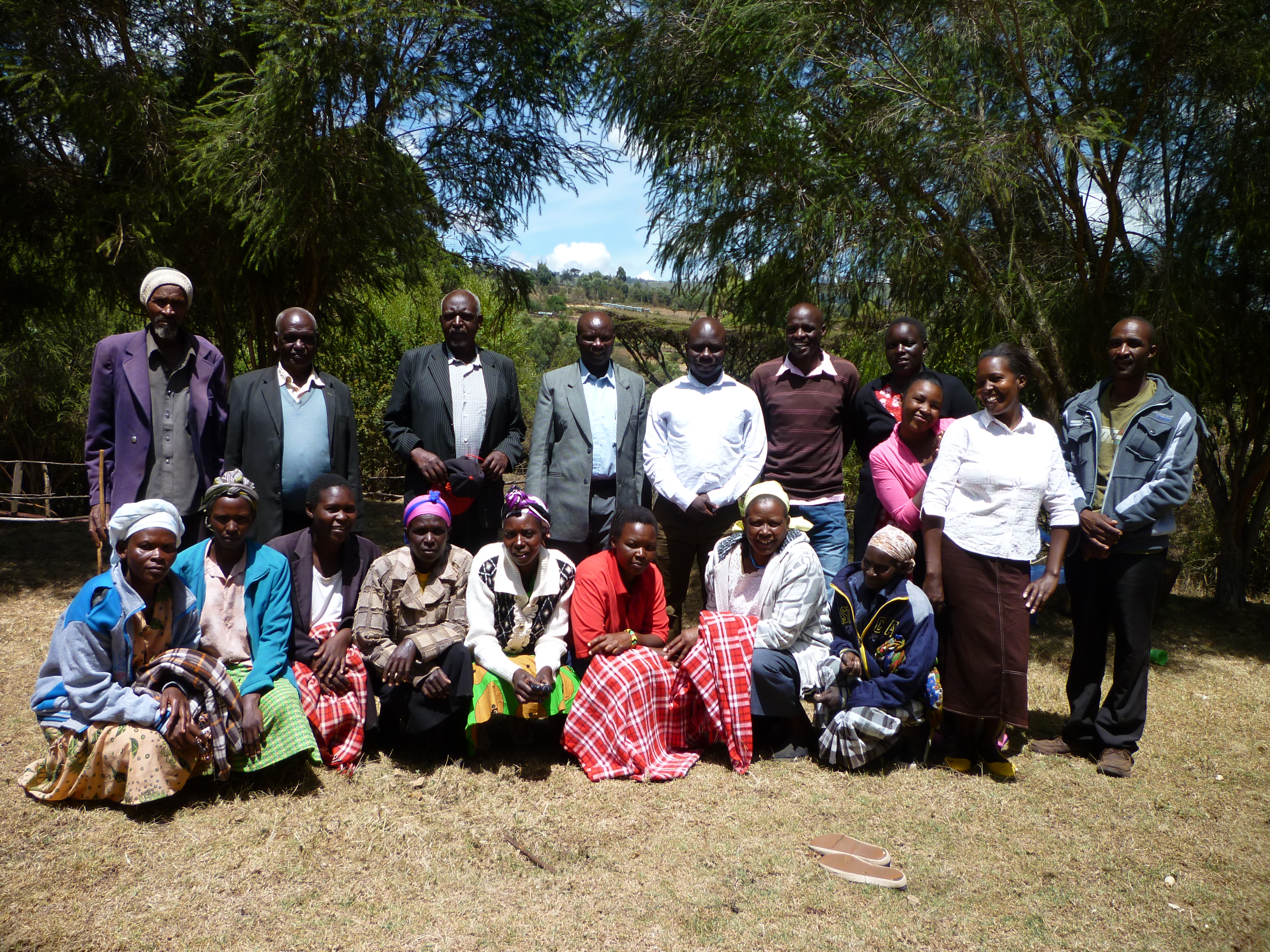
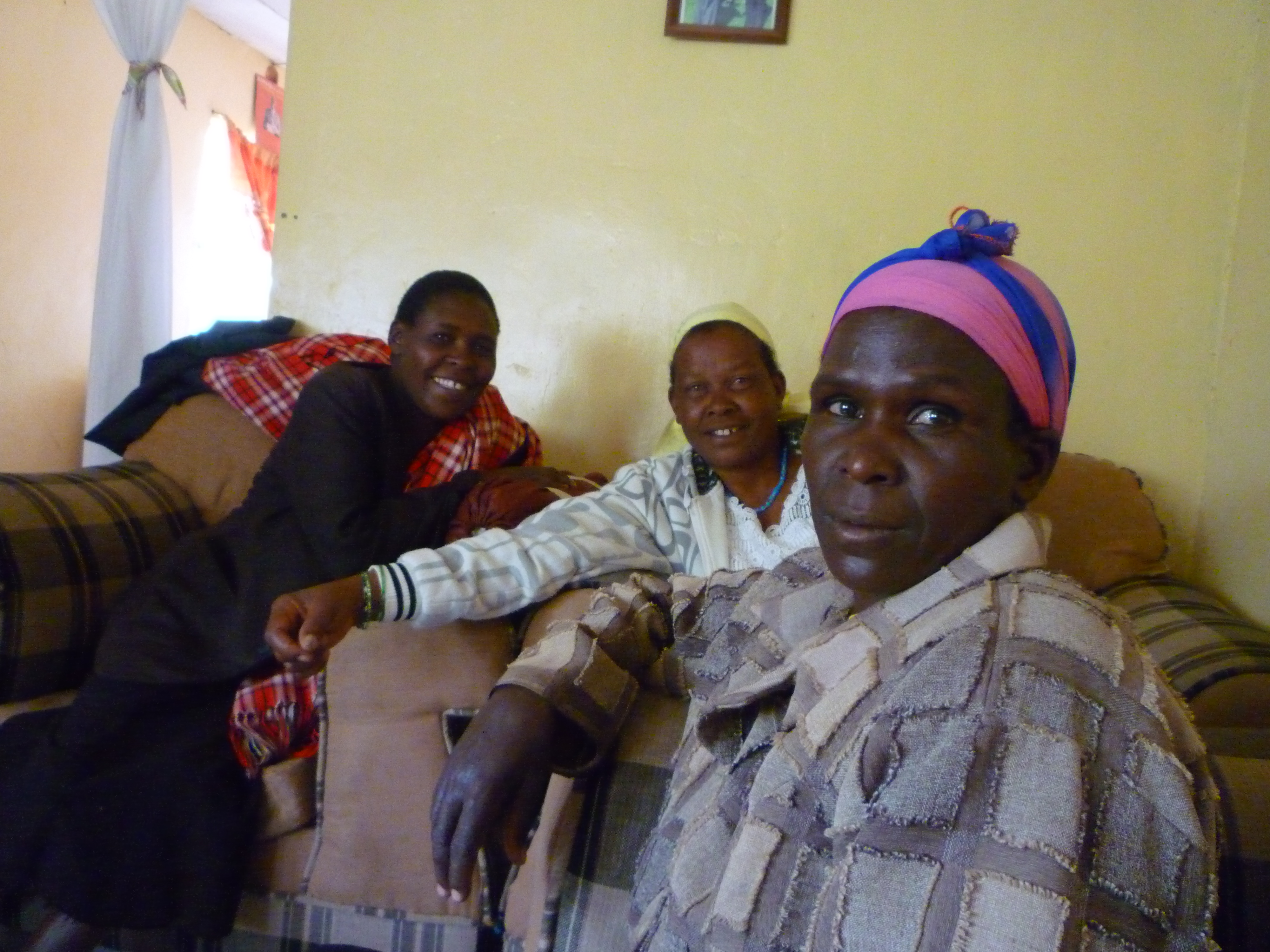
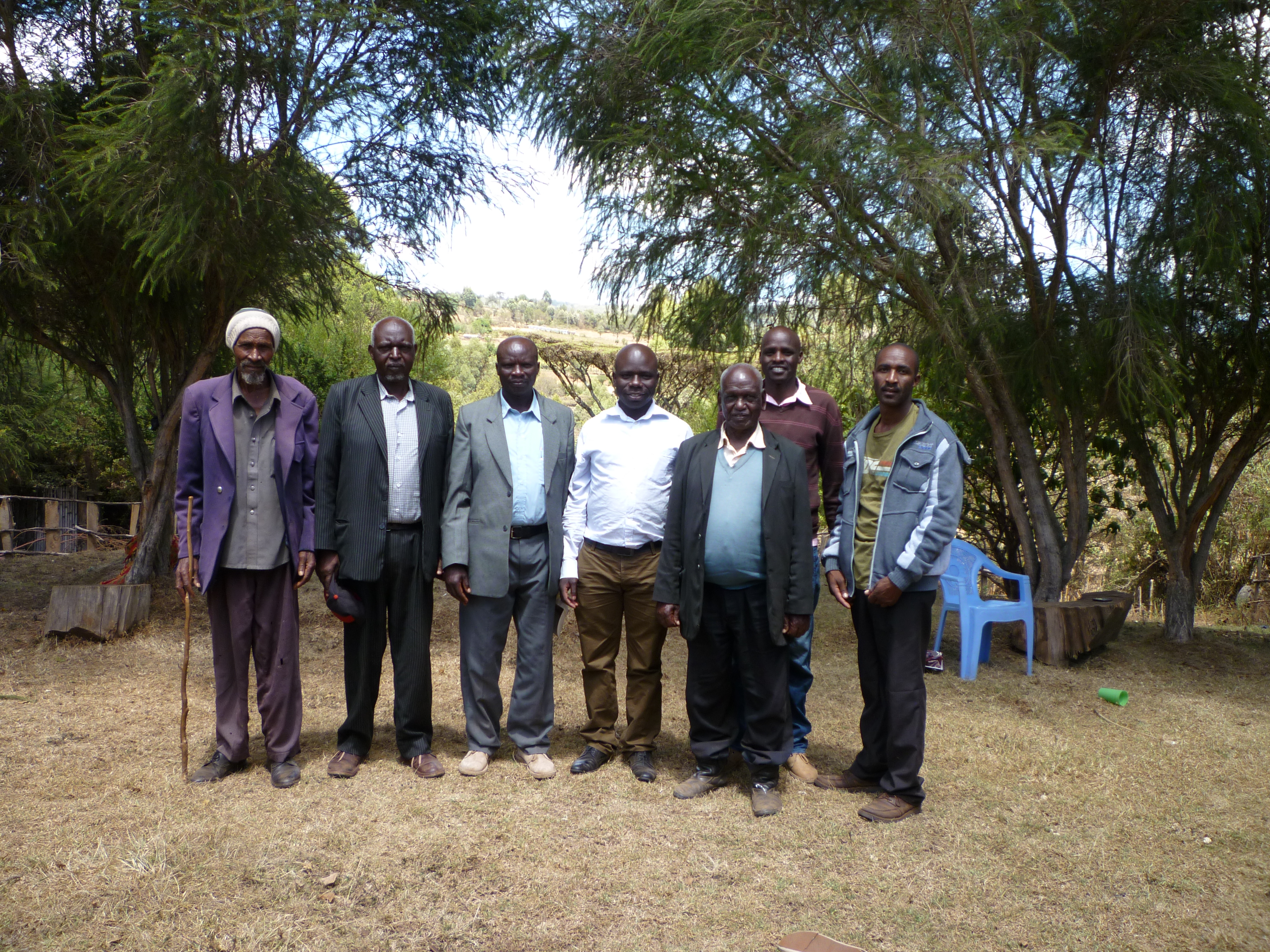

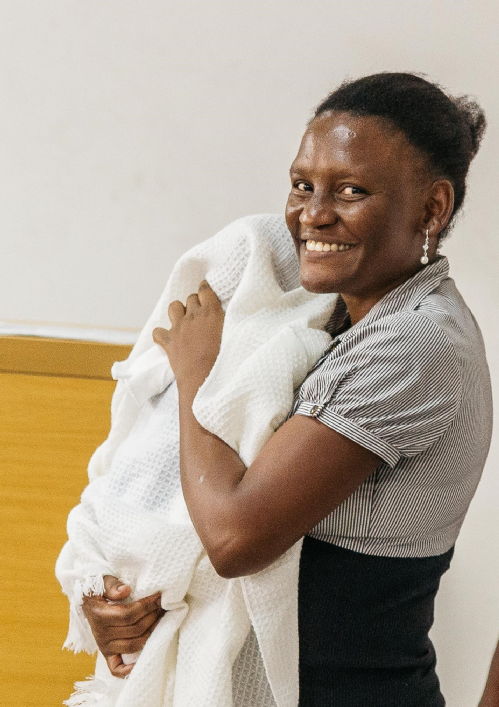
![Older woman and younger woman in a WTW customary marriage with Ann Stewart [left] (Nandi community)](older_woman_and_younger_woman_in_a_wtw_customary_marriage__with_ann_-_nandi_community_edited.jpg)
